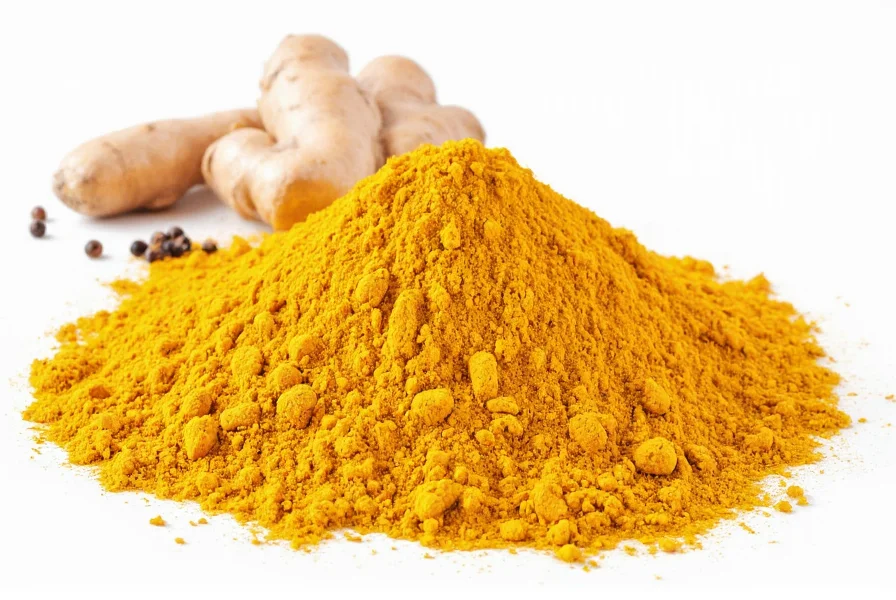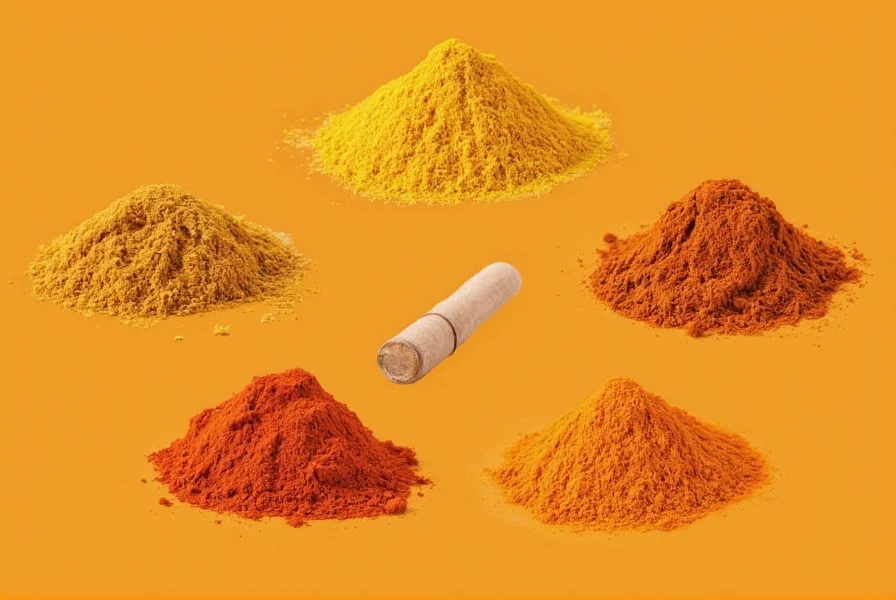Curcuma longa, commonly known as turmeric, has been used for centuries in traditional medicine systems across Asia. Modern science continues to validate many of these traditional uses, revealing how this vibrant yellow spice positively impacts human health through multiple biological pathways. The primary active component, curcumin, accounts for most of turmeric's scientifically documented health benefits, though the whole root contains other beneficial compounds as well.
The Science Behind Turmeric's Health Effects
Curcumin works at the molecular level to influence numerous biological processes. Its most well-documented mechanism is reducing inflammation by inhibiting key inflammatory molecules like NF-kB, which plays a major role in chronic diseases. Unlike pharmaceutical anti-inflammatories that often come with significant side effects, turmeric provides natural inflammation reduction with minimal adverse reactions when consumed in appropriate amounts.
As a potent antioxidant, curcumin neutralizes free radicals while also stimulating the body's own antioxidant enzymes. This dual action makes turmeric particularly effective at combating oxidative stress, which contributes to aging and many chronic diseases. Research published in Advances in Experimental Medicine and Biology confirms curcumin's strong antioxidant capacity that helps protect cells from damage.
Key Health Benefits of Turmeric
Natural Anti-Inflammatory Properties
Chronic inflammation underlies many modern diseases including heart disease, cancer, and Alzheimer's. Turmeric's anti-inflammatory effects rival some anti-inflammatory drugs without their side effects. A comprehensive review in the Journal of Medicinal Food found that curcumin supplementation significantly reduced inflammatory markers in multiple clinical trials. People asking what does turmeric do for inflammation will find substantial evidence supporting its effectiveness for conditions like arthritis.
| Health Benefit | Scientific Support Level | Recommended Daily Amount |
|---|---|---|
| Anti-inflammatory effects | Strong clinical evidence | 500-2,000 mg curcumin |
| Joint pain relief | Good clinical evidence | 500 mg curcumin 2x daily |
| Brain health support | Promising preliminary research | 500-1,000 mg curcumin |
| Heart health benefits | Moderate clinical evidence | 500-1,500 mg curcumin |
Joint Health and Arthritis Relief
One of the most well-documented turmeric benefits for joint pain comes from multiple studies showing its effectiveness for osteoarthritis and rheumatoid arthritis. Research in the Journal of Alternative and Complementary Medicine demonstrated that 1,000 mg of curcumin daily provided similar pain relief to ibuprofen for knee osteoarthritis patients, but with fewer gastrointestinal side effects. Those wondering does turmeric help with arthritis will find compelling evidence supporting its use as a complementary approach.
Brain Function and Mental Health
Turmeric may boost brain-derived neurotrophic factor (BDNF), a growth hormone that functions in the brain. Low levels of BDNF are associated with depression and Alzheimer's disease. A study in the American Journal of Geriatric Psychiatry found that curcumin supplementation improved memory and attention in older adults without dementia. The research suggests regular consumption of turmeric could support cognitive health as we age.

Heart Health Benefits
Curcumin improves endothelial function, which is crucial for proper blood flow and blood pressure regulation. The endothelium lines your blood vessels and plays a key role in cardiovascular health. A study in Nutrition Research showed that curcumin supplementation improved endothelial function as effectively as exercise in postmenopausal women. These findings contribute to understanding how does turmeric help the body maintain cardiovascular wellness.
Digestive Health Support
Turmeric stimulates bile production, which aids digestion and may reduce symptoms of bloating and gas. Research in European Review for Medical and Pharmacological Sciences found that curcumin helped reduce symptoms in people with irritable bowel syndrome (IBS). The spice's anti-inflammatory properties also make it potentially beneficial for inflammatory bowel diseases like Crohn's disease and ulcerative colitis.
Maximizing Turmeric's Benefits
One challenge with turmeric is its low bioavailability—your body doesn't easily absorb curcumin. However, certain strategies significantly enhance absorption:
- Combine with black pepper: Piperine in black pepper increases curcumin absorption by up to 2,000%. This explains why traditional Indian recipes often pair turmeric with black pepper.
- Consume with healthy fats: Curcumin is fat-soluble, so taking it with avocado, olive oil, or coconut milk improves absorption.
- Heat gently: Light cooking helps release curcumin from the turmeric root.
- Consider quality supplements: Look for formulations with enhanced absorption like those containing phospholipids or nanoparticles.
When exploring how to absorb turmeric better, these practical strategies make a significant difference in experiencing the full health benefits of turmeric.
Safety Considerations and Potential Side Effects
Turmeric is generally safe when consumed in food amounts. However, high-dose supplements may cause:
- Digestive upset in sensitive individuals
- Increased risk of bleeding when combined with blood thinners
- Interference with certain chemotherapy drugs
- Worsening of gallbladder problems
The Arthritis Foundation recommends not exceeding 500 mg of curcumin twice daily without medical supervision. Pregnant women should avoid high-dose turmeric supplements. Always consult your healthcare provider before starting any new supplement regimen, especially if you have medical conditions or take medications.
Practical Ways to Incorporate Turmeric
You don't need supplements to benefit from turmeric. Try these simple methods:
- Add 1/2-1 teaspoon to scrambled eggs or tofu
- Blend into smoothies with black pepper and healthy fats
- Stir into soups, stews, or rice dishes
- Make golden milk (turmeric tea) with warm almond milk, black pepper, and a touch of honey
- Use in salad dressings with olive oil and lemon juice

Limitations of Current Research
While turmeric shows promise for many health conditions, research has limitations. Many studies use concentrated curcumin extracts rather than culinary turmeric. Human trials are often small or short-term. More long-term research is needed to confirm optimal dosages and effects for specific conditions. The National Center for Complementary and Integrative Health notes that while preliminary findings are encouraging, more rigorous studies are necessary to confirm turmeric's therapeutic benefits for specific medical conditions.
Conclusion
Turmeric offers impressive health benefits primarily through its anti-inflammatory and antioxidant properties. Understanding what does turmeric do for you reveals its potential to support joint health, brain function, heart health, and digestion. For best results, combine turmeric with black pepper and healthy fats to enhance absorption. While generally safe as a food spice, consult your healthcare provider before using high-dose supplements, especially if you have medical conditions or take medications. Incorporating turmeric into your regular diet provides a natural way to support overall wellness through time-tested culinary medicine.
Frequently Asked Questions
How much turmeric should I take daily for health benefits?
For general health maintenance, 1-3 grams of turmeric root (about 1/2 to 1.5 teaspoons of powder) daily provides benefits. For therapeutic effects, studies typically use 500-2,000 mg of curcumin extract. Always start with lower doses to assess tolerance and consult your healthcare provider for personalized recommendations, especially if considering supplements.
Can turmeric help with joint pain and arthritis?
Yes, multiple clinical studies show turmeric, particularly curcumin, can significantly reduce joint pain and inflammation in both osteoarthritis and rheumatoid arthritis. Research published in the Journal of Medicinal Food found curcumin as effective as ibuprofen for knee osteoarthritis pain relief but with fewer gastrointestinal side effects. For best results, take 500 mg of curcumin twice daily with black pepper to enhance absorption.
What's the best way to absorb turmeric?
To maximize turmeric absorption, always combine it with black pepper (which contains piperine that increases absorption by up to 2,000%) and a healthy fat like olive oil or coconut milk since curcumin is fat-soluble. Light cooking also helps release curcumin from the turmeric root. When taking supplements, look for formulations specifically designed for enhanced bioavailability, such as those containing phospholipids or nanoparticles.
Are there any side effects of taking turmeric?
Turmeric is generally safe when consumed in food amounts. However, high-dose supplements may cause digestive upset in sensitive individuals, increase bleeding risk when combined with blood thinners, or worsen gallbladder problems. The Arthritis Foundation recommends not exceeding 500 mg of curcumin twice daily without medical supervision. Always consult your healthcare provider before starting turmeric supplements, especially if you have medical conditions or take medications.
How long does it take to see benefits from turmeric?
The timeframe for experiencing turmeric benefits varies by individual and condition. For inflammation and joint pain, some people notice improvements within 2-4 weeks of consistent daily use at therapeutic doses (500-1,000 mg curcumin twice daily). More significant changes may take 8-12 weeks. Consistency is key, as curcumin needs to build up in your system. Combining turmeric with black pepper and healthy fats enhances absorption and may speed up results.











 浙公网安备
33010002000092号
浙公网安备
33010002000092号 浙B2-20120091-4
浙B2-20120091-4